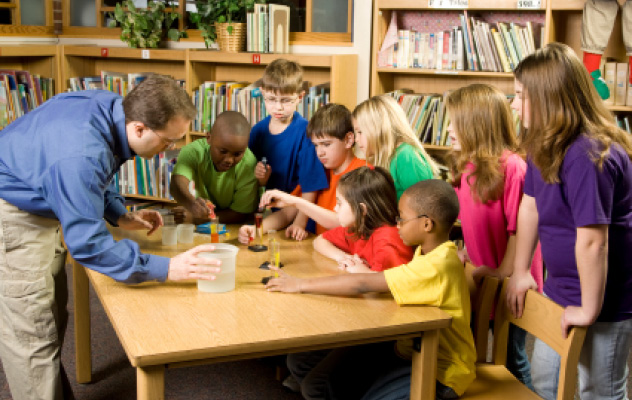
Running a science club can be an extremely rewarding experience. They provide the chance to explore and investigate science, even topics not in the curriculum, and enrich learning.
Think of those wow factor investigations such as: lava lamps, stomp rockets and volcanoes. However as they are hands-on sessions they do require planning ahead and resourcing. This can prove tricky for many teachers, especially on top of the everyday responsibilities of being a class teacher, so here are some resources and ideas to help you get up and running:
If it’s the first science club you’ve run, or you would like a refresher on how to carry out activities, then these demonstration videos are a good place to start. Using everyday resources and equipment, they guide teachers and explain the science behind the activities shown.
Crest Star Investigators are lovely hands on activities perfect for an after school club. In this UK-wide award scheme, run by the British Science Association (BSA), children collect stickers after each investigation and work towards a certificate.
Try these BSA National Science and Engineering Week packs, which contain a treasure chest of fun activities designed for use in a science week but are equally as great for science club.
This set of twelve colourful postcards provides mini-investigations based around electricity, sound, forces, and changes of state. Two cartoon characters, Marvin and Milo demonstrate the fun experiments which are perfect for use in after school clubs. They include: fizzy rockets, magic balloons and musical coat hangers, great for getting children thinking about the science concepts they can see demonstrated.
Use space as a context for learning in science and PE by signing up for Mission X. Children learn principles of healthy eating and exercise, compete for points by finishing training modules, and get excited about the world's future in space and the educational possibilities for their own future. Why not register today?
Have a go at growing crystals, firing water rockets or designing and making kaleidoscopes, with these 'Inspire' resources.
Try to build a stable structure with marshmallows and spaghetti or make a bouncy custard ball. Just two of the many activities in this little book of experiments. Many of these activities are also great for home learning, as they support problem solving and creativity and can offer a nice change from completing a worksheet.
Whilst you are having endless evenings of fun at your club, don’t forget that science clubs are a great way of raising the profile of science in your school. Remember to take plenty of photos and create a display somewhere where the whole school community can see it. The club could also help promote and run activities they have done at the club in a whole school science week.
It is also worth considering support for your club, whether another teacher, teaching assistant or parent helper, help is key. As a practical club it’s necessary to gather equipment and other resources to run the club and set them up. I ran a club for many years and couldn’t have done so without the support of team of parent helpers.
Maybe you want to set up a computing, mathematics or STEM club? Perhaps you’ve set up your own club and have some tips for other club leaders? Please share your experiences and tips or ask others for advice in our primary resource group.
